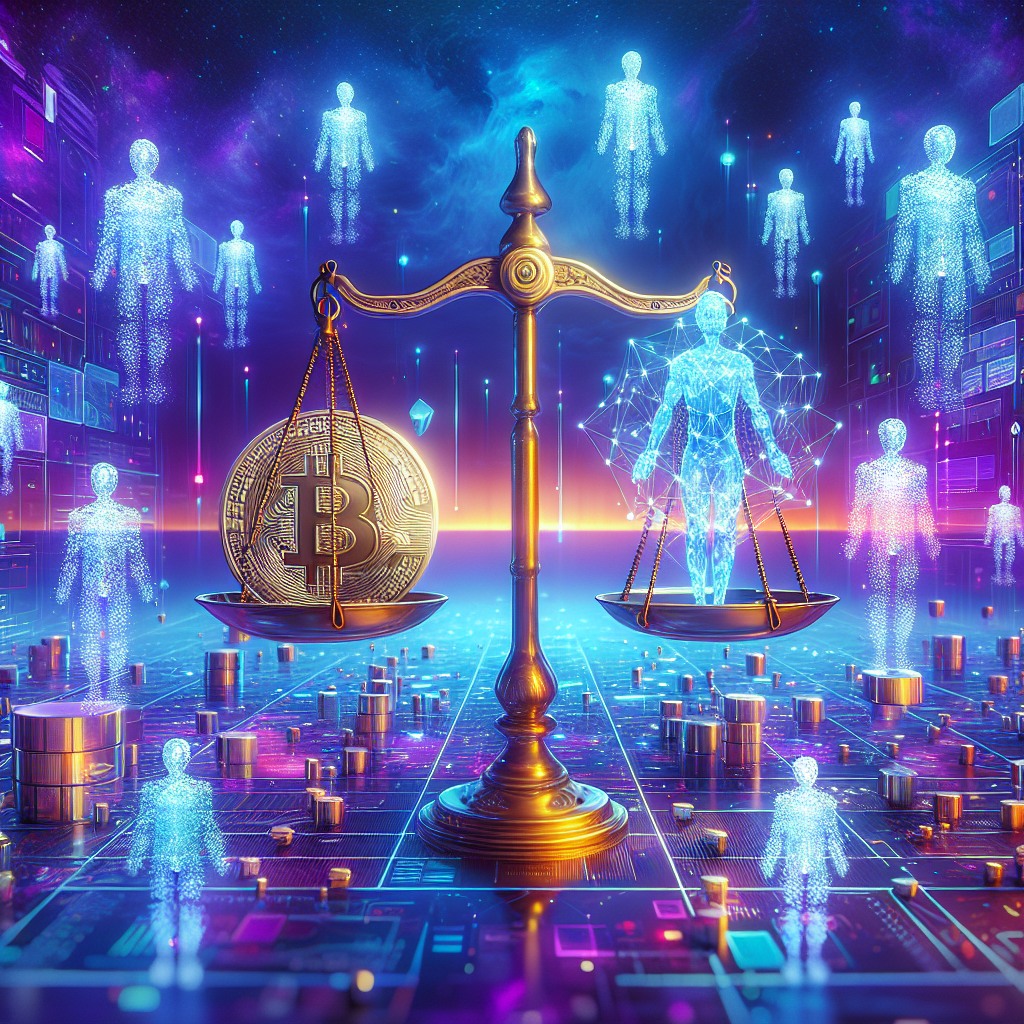Exploring AI Agents for Digital Self-Governance in Crypto
The integration of artificial intelligence (AI) into the cryptocurrency ecosystem is revolutionizing how digital assets are governed and managed. As blockchain technology matures and the demand for decentralized financial systems increases, the concept of AI agents for digital self-governance is gaining traction. This blog will delve deep into how AI agents are shaping the landscape of cryptocurrency governance, the mechanics behind them, their applications, and potential challenges they may face.
The Rise of AI in Cryptocurrency
Over the past few years, AI technology has advanced rapidly, finding applicability across various sectors, including finance, healthcare, and logistics. With the rise of decentralized finance (DeFi) and non-fungible tokens (NFTs), the cryptocurrency domain is not an exception. AI provides a unique set of tools to enhance governance mechanisms, improve decision-making, and automate processes within cryptocurrency networks.
Key advantages of AI in cryptocurrency include:
Understanding Digital Self-Governance
Digital self-governance refers to the ability of a community or a decentralized organization to manage its affairs independently, without relying on external authorities or centralized structures. Unlike traditional systems where governance is often exercised by a central body, crypto communities can establish rules and processes that all participants agree upon, typically encoded in smart contracts.
In such environments, AI agents step in as facilitators of governance tasks. They can analyze vast amounts of data, predict outcomes, and make real-time decisions based on predefined rules and parameters set by the community.
How AI Agents Enhance Governance
AI agents can contribute to digital self-governance in several ways:
1. Data-Driven Governance
AI agents can process large volumes of on-chain and off-chain data to provide insights and predictions that are crucial for governance. This data-driven approach enables more informed decision-making. For instance, AI can analyze user behaviors, market trends, and network activities to recommend policy changes or interventions in governance parameters.
2. Automating Governance Processes
Automated governance processes enhance the efficiency and transparency of decision-making. For example, AI agents can manage voting mechanisms in decentralized autonomous organizations (DAOs). They can facilitate proposals, manage the voting process, and automatically implement changes once voting concludes. Automating these processes minimizes human errors and ensures compliance with the established rules.
3. Enhanced Security
Security is a significant concern in the crypto space, given the prevalence of hacks and fraudulent activities. AI agents can help identify unusual patterns in transaction behavior and flag potential security threats. By continuously learning from past incidents, AI can adapt and strengthen its defenses against evolving security risks.
4. Intelligent Contract Management
Smart contracts are self-executing contracts with the terms of the agreement directly written into code. AI can be employed to optimize the management of these contracts, ensuring they execute under the correct conditions and efficiently adapt to changing scenarios or predetermined benchmarks. This adaptability is crucial for the ever-evolving nature of cryptocurrency markets.
Challenges and Considerations
While the integration of AI agents into cryptocurrency governance presents numerous opportunities, it also introduces challenges that must be addressed for successful implementation:
1. Ethical Concerns
The deployment of AI in decision-making raises ethical questions regarding accountability and bias. Decisions made by AI agents may reflect inherent biases present in the training data or algorithms, potentially leading to unfair outcomes. Establishing ethical guidelines for AI use in crypto governance is essential.
2. Technical Challenges
Developing robust and reliable AI systems requires significant investment in technology and expertise. Additionally, integrating these systems into existing blockchain networks can pose technical hurdles. Ensuring interoperability and scalability of AI solutions is critical for their success in the crypto space.
3. Regulatory Uncertainty
As the regulatory landscape for cryptocurrencies continues to evolve, the application of AI agents in governance could face scrutiny. Regulators may impose guidelines on how AI can be used within these ecosystems, making compliance a crucial factor for crypto projects employing AI technologies.
Future Prospects
The future of AI agents in cryptocurrency governance appears promising, with various projects already exploring innovative applications. Initiatives such as AI-driven governance platforms, predictive analysis tools, and automated compliance systems showcase the potential of this integration.
A few noteworthy projects include:
As these technologies advance, they will redefine how cryptocurrencies operate and govern themselves, paving the way for more resilient, efficient, and accountable financial systems.
Conclusion
The intersection of artificial intelligence and cryptocurrency governance offers exciting possibilities for the future of digital self-governance. By leveraging AI agents, crypto communities can enjoy improved decision-making, increased efficiency, and enhanced security. However, ethical considerations, technical challenges, and regulatory uncertainties remain hurdles to overcome.
Moving forward, stakeholders in the crypto space must collaborate to establish ethical frameworks, invest in robust technologies, and adapt to the changing regulatory landscape. As these developments unfold, the integration of AI agents will indubitably play a transformative role in shaping the future of cryptocurrency governance. Embracing this technology can propel cryptocurrencies towards a more self-sufficient, transparent, and accountable future.




